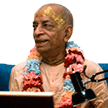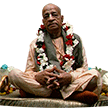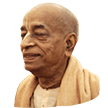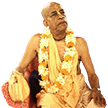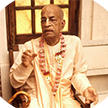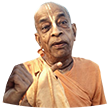Great Offenses - an essential subject: Difference between revisions
(Created page with "Category:Essential Subjects <!----------------------- edit below this line -----------------------> <!------------------------ begin introduction text below --------------...") |
(Vanibot #0041: Moves Choose Another box to the end) |
||
| Line 2: | Line 2: | ||
<!----------------------- edit below this line -----------------------> | <!----------------------- edit below this line -----------------------> | ||
<!------------------------ begin introduction text below ------------------------> | <!------------------------ begin introduction text below ------------------------> | ||
The Māyāvādī sannyāsīs are missing the real presence of Nārāyaṇa. This is because they falsely claim to be Nārāyaṇa Himself. According to the customary etiquette of Māyāvādī sannyāsīs, they address one another as Nārāyaṇa. To say that everyone is a temple of Nārāyaṇa is correct, but to accept another human being as Nārāyaṇa is a great offense. The conception of daridra-nārāyaṇa (poor Nārāyaṇa), an attempt to identify the poor with Nārāyaṇa, is also a great offense. Even to identify Nārāyaṇa with demigods like Lord Brahmā and Lord Śiva is an offense. | |||
Srila Prabhupada's books, lectures, conversations and letters offer a comprehensive presentation of this essential subject as seen in the Vaniquotes '''[[Vaniquotes:Category: | Srila Prabhupada's books, lectures, conversations and letters offer a comprehensive presentation of this essential subject as seen in the Vaniquotes '''[[Vaniquotes:Category:Great Offense|Great Offenses]]''' category. An introduction from his teachings is given below in the following 8 quotes. | ||
<!-------- end introduction text and don't touch next three lines ---------> | <!-------- end introduction text and don't touch next three lines ---------> | ||
---- | ---- | ||
== Quotes from Srila Prabhupada's | == Quotes from Srila Prabhupada's teachings == | ||
<!----------------- edit quote boxes below this line -----------------> | <!----------------- edit quote boxes below this line -----------------> | ||
{{VaniQuotebox| | {{VaniQuotebox|The Mayavadi philosophers equalize the jivas and the Supreme Lord and consider them to be one, but that is the greatest offense to the lotus feet of Lord Visnu|Lord Viṣṇu is addressed here as pūruṣottama, the best of all living entities—namely viṣṇu-tattvas and jīva-tattvas. It is a great offense, therefore, to compare Lord Viṣṇu and the jīva-tattva or consider them on an equal level. The Māyāvādī philosophers equalize the jīvas and the Supreme Lord and consider them to be one, but that is the greatest offense to the lotus feet of Lord Viṣṇu. '''(Śrīmad-Bhāgavatam 4.20.27)'''}} | ||
{{VaniQuotebox| | {{VaniQuotebox|There are many kinds of offenses, but the greatest offense is to offend a devotee of the Lord|Although, by chance, the doormen committed a mistake by checking the brāhmaṇas from entering the gate of Vaikuṇṭha, they were at once aware of the gravity of the curse. There are many kinds of offenses, but the greatest offense is to offend a devotee of the Lord. Because the doormen were also devotees of the Lord, they were able to understand their mistake and were terrified when the four Kumāras were ready to curse them. '''(Śrīmad-Bhāgavatam 3.15.35)'''}} | ||
{{VaniQuotebox| | {{VaniQuotebox|A pure Vaisnava should be very careful to engage in his specific duty without criticizing others. This is the safest position. Otherwise, if one tends to criticize others, he may commit the great offense of criticizing a Vaisnava|Mother Pārvatī was justified in punishing Citraketu, for Citraketu impudently criticized the supreme father, Mahādeva, who is the father of the living entities conditioned within this material world. The goddess Durgā is called mother, and Lord Śiva is called father. A pure Vaiṣṇava should be very careful to engage in his specific duty without criticizing others. This is the safest position. Otherwise, if one tends to criticize others, he may commit the great offense of criticizing a Vaiṣṇava. '''(Śrīmad-Bhāgavatam 6.17.15)'''}} | ||
{{VaniQuotebox| | {{VaniQuotebox|Advanced devotee never disobey or disrespect another devotee. Disrespect to another devotee is a great offense. Vaisnava aparadha|Advanced devotee never disobey or disrespect another devotee. Disrespect to another devotee is a great offense. Vaiṣṇava aparādha. Vaiṣṇava aparādha is very serious offense. Therefore we teach to address amongst the devotees, "Prabhu", "Prabhu", "Such and such Prabhu." This should not be simply spoken by the lips. It should be realized. Everyone should think other devotee as his prabhu, master. Not he should try to become master. '''(Nectar of Devotion Lecture, 23 October 1972, Vrndavana)'''}} | ||
{{VaniQuotebox| | {{VaniQuotebox|If anyone thinks that "I am chanting Hare Krsna mantra. It is reacting all the effects of my sinful life. Then again I can commit and chant Hare Krsna. It is very good business..." No. That is great offense|If anyone thinks that "I am chanting Hare Kṛṣṇa mantra. It is reacting all the effects of my sinful life. Then again I can commit and chant Hare Kṛṣṇa. It is very good business..." No. That is great offense. Nāmno balād yasya hi pāpa-buddhiḥ. One should not indulge in such a way. Jagāi-Mādhāi was accepted by Lord Caitanya only on the promise that they would not commit any more any sinful activities. Lord Caitanya Mahāprabhu's mercy is there for everyone. He can accept everyone. '''(Nectar of Devotion Lecture, 7 November 1972, Vrndavana)'''}} | ||
{{VaniQuotebox| | {{VaniQuotebox|The greatest offense is to defy the spiritual master and to act sinfully, thinking in the strength of chanting|The greatest offense is to defy the spiritual master and to act sinfully, thinking in the strength of chanting. If a man thinks that chanting will save him from all kinds of sinful reaction deliberately committee. by him, then he becomes the greatest offender. By chanting Hare Krishna certainly we become free from all sinful reactions, but that does not mean that we shall deliberately commit sins and counteract it by chanting. '''(Letter, 23 November 1967, Calcutta)'''}} | ||
{{VaniQuotebox| | {{VaniQuotebox|The greatest offense of the Mayavadi philosophers is to consider Lord Visnu and the living entities to be one and the same|One who thinks that there is a difference between Lord Viṣṇu's body and His soul dwells in the darkest region of ignorance. There is no difference between Lord Viṣṇu's body and Viṣṇu's soul, for they are advaya-jñāna, one knowledge. In this world there is a difference between the material body and the spiritual soul, but in the spiritual world everything is spiritual and there are no such differences. The greatest offense of the Māyāvādī philosophers is to consider Lord Viṣṇu and the living entities to be one and the same. '''(Caitanya-caritāmṛta, Ādi-līlā 7.115)'''}} | ||
{{VaniQuotebox| | {{VaniQuotebox|In human society, aversion to the principles of understanding the Supreme Personality of Godhead is the cause of all falldowns. That is the greatest offense of human life|In human society, aversion to the principles of understanding the Supreme Personality of Godhead is the cause of all falldowns. That is the greatest offense of human life. Therefore, māyā, the material energy of the Supreme Personality of Godhead, is always giving us trouble in the shape of the threefold miseries. This material energy is constituted of the three modes of material nature. '''(Bhagavad-gītā 16.24)'''}} | ||
<!----------------- edit quote boxes above this line -----------------> | <!----------------- edit quote boxes above this line -----------------> | ||
''' | '''Great Offenses - [[Vaniquotes:Category:Great Offense|explore more within this category]]'''. | ||
{{EsentialSubjectTotal}} | {{EsentialSubjectTotal}} | ||
<div style="float:left;"> | |||
{{EssentialSubjectnav}} | |||
</div> | |||
__NOTOC__ | __NOTOC__ | ||
__NOEDITSECTION__ | __NOEDITSECTION__ | ||
Latest revision as of 16:30, 22 November 2020
The Māyāvādī sannyāsīs are missing the real presence of Nārāyaṇa. This is because they falsely claim to be Nārāyaṇa Himself. According to the customary etiquette of Māyāvādī sannyāsīs, they address one another as Nārāyaṇa. To say that everyone is a temple of Nārāyaṇa is correct, but to accept another human being as Nārāyaṇa is a great offense. The conception of daridra-nārāyaṇa (poor Nārāyaṇa), an attempt to identify the poor with Nārāyaṇa, is also a great offense. Even to identify Nārāyaṇa with demigods like Lord Brahmā and Lord Śiva is an offense.
Srila Prabhupada's books, lectures, conversations and letters offer a comprehensive presentation of this essential subject as seen in the Vaniquotes Great Offenses category. An introduction from his teachings is given below in the following 8 quotes.
Quotes from Srila Prabhupada's teachings
Great Offenses - explore more within this category.
Vanipedia has now over 903 introductory articles compiled from Srila Prabhupada's books under the series titled Essential Subjects. All these articles can be seen in the Table of Content on the right side of this article and also here in this Umbrella Category. Browse through them to relish the breadth and depth of Srila Prabhupada's teachings - There is a subject for everyone.
